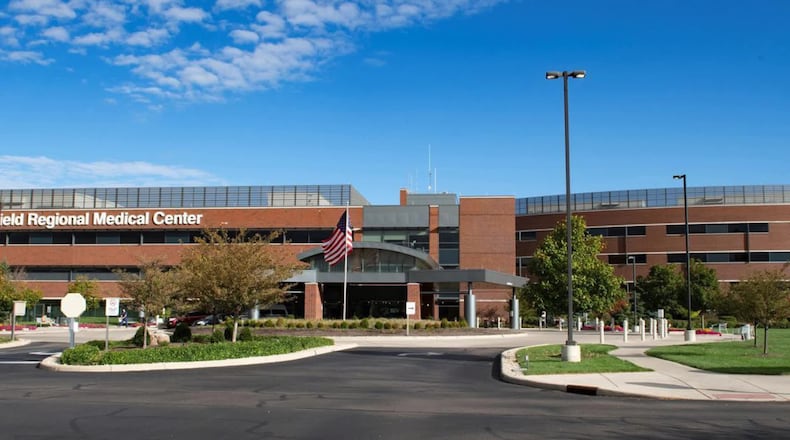Staff will also be using another Brainlab tool: Cirq, a new robotic arm controlled by surgeons to guide them in their surgical steps. The system works in sync with other devices in the operating room, moving with the procedure and on the surgeon’s command.
The robotics technology is on site at the Springfield hospital, a Mercy Health spokesperson confirmed. Mercy Health providers are training with it now, and it should be used during patient cases before the end of the summer.
“We are proud to be the first in the Midwest to offer this new technology for spine and brain procedures,” said Chase Collins, Director of Neurosciences at Mercy Health - Springfield.
Using the new mobile imaging robot and robotic surgical hand provides many benefits compared to traditional surgeries, Springfield neurosurgeon Dr. Kamal Woods said.
With the technology, surgeries will be minimally invasive, resulting in a shorter expected recovery time, less postoperative pain and shorter hospital stays.
“It doesn’t replace our expertise or skill; it enhances them so that we can be more accurate and efficient in surgery, all with the goal of making the outcome for patients better,” Woods said.
Woods said back pain is among the top three reasons people see a physician.
“I always feel confident in saying that everybody either has back pain or knows somebody who has back pain. It’s that common,” he said.
Springfield Regional Medical Center often sees patients on a weekly basis for compression fractures, which typically occur when someone who may have osteoporosis lifts something heavy, falls or twists in an uncomfortable position.
Woods said among the roughly 50 patients he sees on a weekly basis, cases of pinched nerves in their backs, cases of spinal stenosis (where the spinal column narrows and puts pressure on the spinal cord) and sciatica (pinching of the sciatic nerve) are common.
Woods expects the new technology will attract more patients to the hospital.
“I’m anticipating and hoping we will see patients come from the Greater Dayton market,” Woods said.
About the Author



